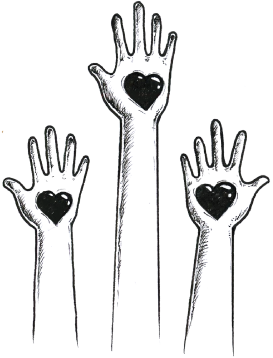October 2, 2018
Handbook of Participatory Design for Appropriate Technology
contributor: Andrew Drain, Melissa McCreery
Truly collaborative humanitarian technology development is hard. Unexpected factors such as the type and order of activities, facilitation style and monitoring and evaluation style can have a large effect on the quality of collaboration between the designer and the community member. Those factors also influence the much-touted empowering effects of co-design.
Over the past two years, we have been working on co-designing assistive technologies that enable better access to traditional small-plot farming with farmers with disability in rural Cambodia. Across the six project briefs undertaken, we have created a new participatory design handbook to assist with activity planning, ideation, testing, refining, monitoring and evaluating. The handbook was developed specifically for the design of simple, mechanical, agricultural solutions, but could easily be modified to enable use in a range of other applications.
The handbook includes the following sections:
- Guiding principles for effective, ethical collaborative design
- The high-level project stages, and simple design process used
- Dozens of activity descriptions including templates, tips and photos
- All monitoring and evaluation templates used
The handbook is an evolving document and we welcome feedback on ways to improve. Find it here:
Participatory Design Handbook: Inclusive Agriculture Cambodia 2018
If you are interested in seeing some of the project work completed using this handbook, please see our project summary report.
About the Authors
Andrew Drain is a Contributing Editor at Engineering for Change, Researcher and Product Development Engineer based at Massey University, New Zealand. Andrew’s research focuses on the collaborative design process used for humanitarian technology development, and in particular, how collaboration can be evaluated and enhanced for better project impact.
Melissa McCreery is a Mechanical Engineer working in international development with Engineers Without Borders Australia, in Cambodia. She works in a Technical Support role within a local social enterprise, focused on the built environment and how it can encourage unity or segregation through certain design considerations.





19-10-2018 07:15:02 AM
Khalid Maqsood says: